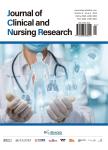Analysis of the Effects of Preoperative Hepatic Artery Chemoembolization and Quality Nursing Intervention on the Perioperative Safety and Short-term Prognosis of Liver Transplantation in Patients with Hepatocellular Carcinoma
作者机构:The Third Hospital of Hebei Medical UniversityShijiazhuang 050051China
出 版 物:《Journal of Clinical and Nursing Research》 (临床护理研究(英文))
年 卷 期:2024年第8卷第4期
页 面:375-380页
学科分类:1002[医学-临床医学] 100214[医学-肿瘤学] 10[医学]
主 题:Hepatocellular carcinoma Liver transplantation Hepatic artery chemoembolization Quality nursing intervention
摘 要:Objective: To investigate the effects of preoperative hepatic artery chemoembolization (TACE) and quality nursing interventions on the perioperative safety and short-term prognosis in patients with hepatocellular carcinoma undergoing liver transplantation. Methods: The study period spanned from January 2021 to December 2023, and 125 patients with hepatocellular carcinoma admitted to our hospital were selected, all of whom underwent liver transplantation. They were randomly divided into an observation group (n = 63) and a control group (n = 62). The patients in the control group did not undergo TACE before the operation, and the patients in the observation group underwent TACE and quality nursing intervention before the operation. The operation time, intraoperative blood loss, length of hospitalization, liver- free period, complication rate, short-term prognosis, and liver function indexes between the two groups were compared. Results: There was no significant difference in operation time, intraoperative blood loss, and length of hospitalization between the two groups (P 0.05). The rate of immune reactive complications in the observation group was lower than that of the control group (P 0.05). The two groups had no significant difference in postoperative liver function indexes (P 0.05). Conclusion: Preoperative TACE and high-quality nursing intervention in patients with hepatocellular carcinoma had no adverse effect on the perioperative safety and short-term prognosis, prolonged the liver-free time, and reduced the incidence of immune-reactive



